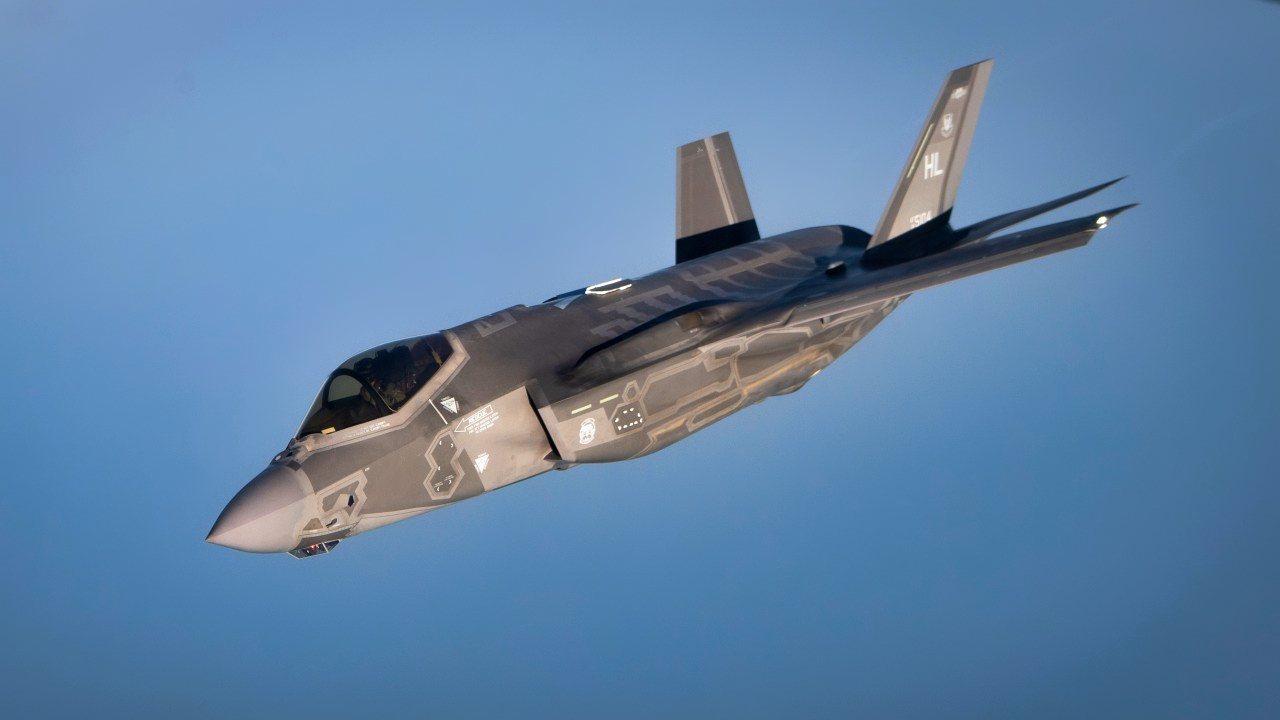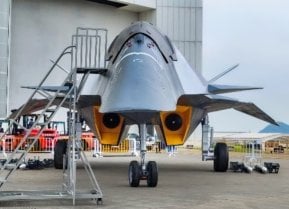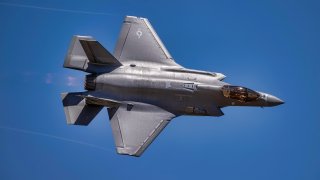China Would Freak: Why Taiwan Could Get the F-35 Fighter
Taiwan is reportedly eyeing a $5 billion U.S. defense purchase, including F-35s, E-2 Hawkeyes, Patriot missiles, and the Aegis Combat System, to demonstrate commitment to self-defense as Donald Trump assumes office.
What You Need to Know: Taiwan is reportedly eyeing a $5 billion U.S. defense purchase, including F-35s, E-2 Hawkeyes, Patriot missiles, and the Aegis Combat System, to demonstrate commitment to self-defense as Donald Trump assumes office.

-Such a purchase would signal Taiwan’s resolve in deterring Chinese aggression, as the island prepares for potential invasion threats by 2027. For the U.S., the deal could enhance Taiwan’s defense, support a key trading partner, and yield financial benefits.
-However, increased arms support for Taiwan risks escalating tensions with China, as open conflict between the U.S. and China could have severe global economic and security implications.
F-35s, Warships, and More: Taiwan's Proposed Arms Package from the U.S.
Taiwan has indicated interest in making a significant defense purchase from the United States to show incoming President Donald Trump that the island nation is committed to defending itself. Reportedly, the purchase could include sixty F-35 Joint Strike Fighters, four E-2 Hawkeyes, ten retired U.S. warships, and 400 Patriot missiles. Taiwan is said to also be mulling a purchase of the Aegis Combat System, which can defend against incoming missiles. All told, the package would cost more than $5 billion.

The deal may make sense for the Taiwanese. But does the deal, particularly the sale of F-35s to Taiwan, make sense for the Americans?
A Show of Force: Taiwan and F-35
“Taiwan is thinking about a package to show that they are serious,” one former Trump official told the Financial Times. “Assuming they follow through, they will go to the U.S. national security advisor when they are named and present a very aggressive package of American hardware.”
Reports indicate that Taiwan has already begun informal discussions with the incoming Trump administration about a weapons sale, although, Taiwan denied such talks were underway.
“There has been a period of consolidation and discussion between Taiwan and the United States on military needs, but there is no new stage of discussion at this time,” Taiwan said in a statement to Reuters.
Taiwan is actively preparing for a Chinese invasion; Mainland China of course. Claims that Taiwan is Chinese territory and has never acknowledged the existence of the island nation. U.S. officials have suggested China will be fully prepared to launch an invasion of Taiwan by 2027.

To date, the U.S. has maintained strategic ambiguity toward Taiwan, never explicitly committing to the nation’s defense, nor denying the prospect of assistance. The sale of U.S. hardware to Taiwan would suggest an investment in Taiwan’s well-being.
Then again, the sale of U.S. military equipment does not come with a guarantee of boots-on-the-ground intervention should the buying nation be invaded.
The prospective sale has pros and cons for the Americans. Concerning the pros, first, the sale bolsters the defense of a friendly nation whose economy is important for the global community. Second, the sale would come with obvious financial benefits to the U.S., although were Taiwan to become embroiled in war, or to become blockaded, the result could be a, “$2.7 trillion loss in world economic activity in the first year alone, equivalent to a 2.8 percent decline in global GDP,” which would indeed hurt the U.S. financially.
The primary drawback of making the sale would be escalating tensions with China. All eyes are on the Sino-American relationship. China is a revisionist power currently investing heavily in expanding its military capabilities while making territorial claims throughout the Indo-Pacific. Trump meanwhile has employed abrasive rhetoric towards the Xi regime. Any form of open conflict would the U.S. and China has the potential to be monumentally destructive and should be avoided.
About the Author: Harrison Kass
Harrison Kass is a defense and national security writer with over 1,000 total pieces on issues involving global affairs. An attorney, pilot, guitarist, and minor pro hockey player, Harrison joined the US Air Force as a Pilot Trainee but was medically discharged. Harrison holds a BA from Lake Forest College, a JD from the University of Oregon, and an MA from New York University. Harrison listens to Dokken.
Image Credit: Creative Commons and/or Shutterstock.


